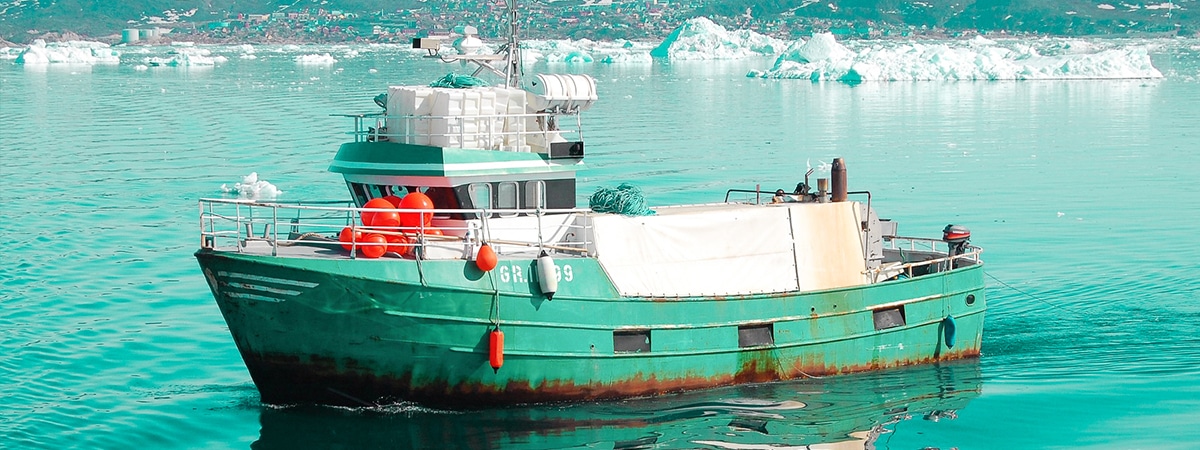Protecting the oceans with sustainable fish farming

The overfishing of the world’s fish stocks has been an explosive topic for years, which many of us are already aware of. The global demand for fish is constantly increasing and, according to United Nations figures, the worldwide per capita fish consumption today is already over 20 kilograms. Around one third of fish stocks are at the limit, which in concrete terms means that we are robbing ourselves of the foodstuff „sea fish“ in the long term – provided that everything continues to run as it has done up to now.
What is endangering the fishing industry?
Illegal fishing is a dangerous factor for marine ecosystems and contributes significantly to overfishing of the oceans. „Illegal fishing is defined as foreign ships fishing without permission in the territorial waters of another nation or otherwise disregarding the fishing laws of the country“ (World ocean review). Illegal fishing also means that fish are fished during closed periods or with unauthorized fishing gear. A major problem is that illegal fishing is not documented and happens in areas for which the fishermen do not have a license or where there is even a ban on fishing. In addition, it is also impossible to control whether endangered species of edible fish are caught and how large the quantities actually are. According to a study by an international research team in the trade magazine „Science Advances“, between 7.7 and 14 million tons of fish are illegally and uncontrolled taken from the sea every year.
Economic factors also play a major role, as illegal fishing causes billions of dollars in losses every year. Illegal trade endangers food and economic systems, especially in the heavily affected countries like Africa, Asia and South America. But pirate fishing also causes a large annual loss for Germany. To combat illegal and unregulated fishing, the European Community has launched its own legislative initiative – the „IUU Regulation“ – which has been in force since 2010. The regulation stops imports of illegal fishery products into Europe. In order to successfully implement the IUU Regulation, the Commission is actively working with all stakeholders in this field.
How can natural resources be protected?
The protection of the oceans is also one of the primary goals of environmental and development policy. Innovative concepts and alternatives to conventional fishing are essential to achieve this goal. An adequate solution for the environmentally friendly breeding of fish are closed recirculation systems in which the water is continuously circulated and cleaned with the latest filter technology. This enables species-compatible, reliable and location-independent fish production. With the SEAWATER Cube, we would like to contribute to the protection of natural stocks and enable sustainable, controlled and regional fish farming. We attach great importance to conscious nutrition and responsible consumption. With our concept we would also like to encourage consumers to rethink. The fish is fished fresh to order out of the SEAWATER Cube. Thanks to regional production, consumers know exactly where the fish comes from and can see for themselves how the fish is kept.
Of course, one person or one company alone cannot change the world, but a lot can be achieved if each individual makes his or her own personal contribution to the overall success. Many larger companies and start-ups are consciously addressing the issue of sustainability, aligning their strategies accordingly and thus actively contributing to the protection of our planet.
Further informationen about the SEAWATER Cube
Check out more facts about our system and the technology.
References
— „Wir müssen weiter forschen und neue Nutzungskonzepte entwickeln, die unsere Fischerei auf nachhaltige Beine stellen“ (BMEL), https://www.bmel.de/SharedDocs/Reden/2018/180815-TI.html, recalled on 20th March 2020
— Meeresschutz (BMEL): https://www.bmel.de/DE/Wald-Fischerei/06_Meeresschutz/Meeresschutz_node.html, recalled on 20th March 2020
— Illegale Fischerei (WWF): https://www.wwf.de/themen-projekte/meere-kuesten/fischerei/illegale-fischerei/, recalled on 20th March 2020
— Milliardenverluste durch illegale Fischerei (wissenschaft.de): https://www.wissenschaft.de/umwelt-natur/milliardenverluste-durch-illegale-fischerei/, recalled on 20th March 2020
— Illegale Fischerei (IUU) (Europäische Kommission): https://ec.europa.eu/fisheries/cfp/illegal_fishing_de, recalled on 23th March 2020
— Illegale Fischerei führt zu Milliardenverlusten (spiegel.de): https://www.spiegel.de/wirtschaft/unternehmen/fischfang-illegale-fischerei-fuehrt-zu-milliardenverlusten-a-5856c640-e717-47e9-888f-7b9c222abd61,recalled on 20th March 202
— Die illegale Fischerei (World Ocean Review): https://worldoceanreview.com/de/wor‑2/fischerei/die-illegale-fischerei/, recalled on 20th March 2020
Image source
Pixabay (jonasmtbxdk)